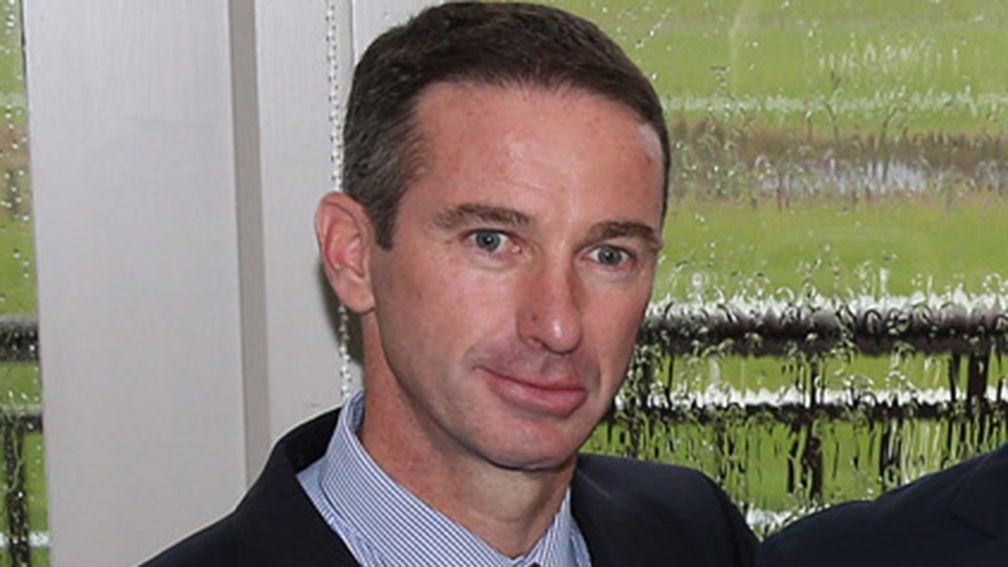Jockeys' chief accuses Irish regulator of overzealous policing on new whip limit

Andrew Coonan, secretary of the Irish Jockeys Association, has accused the regulator of enforcing the whip rules too strictly after a spike in the number of breaches in 2018 was used as the justification for the Irish Horseracing Regulatory Board to announce a limit on the number of strikes.
On Friday, after publishing its 2018 statistics that revealed a 26 per cent increase in the number of whip breaches to 213, the IHRB revealed a limit of eight strikes is among the proposed changes that could be implemented as soon as next month.
If a rider hits a horse nine times, it will trigger a stewards' inquiry rather than an automatic sanction.
In Britain, a maximum of seven strikes are permitted on the Flat and eight over jumps, while as of Friday the limit in France has been reduced from six to five, so the move will bring Ireland into line with the two other major European racing jurisdictions.
Denis Egan, the IHRB chief executive, confirmed the changes would apply to both the Flat and jumps codes.

He added that a guideline will be introduced to define the term "time to respond", suggesting it would be at least three strides between strikes.
The third aspect of the amendments will see riders automatically referred to an IHRB referrals hearing when they breach the rules four times or more in a rolling 12-month period, and that a minimum six-day ban would be imposed in those circumstances.
"The figures have disimproved," Egan said. "We met with the jockeys' association and the qualified riders last July. Andrew Coonan raised the question of whether the rules were being policed more strictly, but that's not the case. I don't accept that.
"We said to them that if there wasn’t an improvement, we’d be left with no alternative but to increase the penalties for whip breaches.
"We produced statistics on a monthly basis that were circulated to the two jockeys’ associations and the figures got worse."
However, Coonan is furious that the IHRB is using the statistics as the reason for the change.
"I don’t accept they're doing this because the riders aren’t listening," he said on Friday. "That’s just not the situation.
"We have the same riders, more or less, riding the same sort of horses, in the same races, and yet according to the IHRB the stats have gone up significantly.
"In our view there's quite clearly a change in the stewarding policy. That was never discussed with riders. We don’t accept riders are using their sticks more forcefully or more frequently, so the policing has changed. They're implementing the rules more strictly."
The figure of 213 is the highest number since 235 breaches were recorded in 2012, and the rules were then tweaked in 2013.
Breaches of the whip rules
2018 213
2017 169
2016 131
2015 160
2014 157
2013 140
2012 235
2011 209
2010 162
2009 164
Coonan also expressed frustration that the move, which will go before an IHRB board meeting on March 19, represents a deterioration in relations between the jockeys and the regulator.
"What’s disappointing is that there has been a good working relationship between the jockeys and the IHRB with regard to penalties for drugs and various other legislative matters," he said.
"I find it very disappointing that the IHRB has taken a very high-handed view to go and implement these rules regardless of the jockeys’ views."
Recommended changes
1 Eight strikes the recommended limit and anything above that will trigger an inquiry
2 "Time to respond" to be defined as at least three strides between strikes
3 Riders to be referred automatically if they fall foul of whip rules four or more times in 12-month rolling period
Asked if the IHRB was responding to any external pressure, Egan said: "We're aware of what’s going on elsewhere and we're aware of welfare concerns within Ireland, but we're not under any immediate pressure. We feel this is the right thing to do for racing."
The starkest year-on-year variation in the IHRB statistics saw the number of passport breaches jump 463 per cent to 111 due to “non-compliance with the new rules introduced during 2018”, mainly relating to stricter vaccination requirements.
Running and riding inquiries rose by 27 per cent to 37, while the number of hurdlers rated 130 or higher was up 59 per cent to 178. "That is due to the handicapping team publishing as many new ratings as possible for horses entered in Graded races," Egan explained.
"And the fact that horses who would have been traditionally removed from the system at the end of one season because they were going chasing being left on the system as they have continued to run over hurdles due to the faster ground."
Read The Briefing from 8.30am daily on racingpost.com and the Racing Post mobile app with all the day's latest going, weather, market moves and non-runner news
Published on 20 March 2019inNews
Last updated 17:24, 20 March 2019
- The latest edition of the Racing Post is available to read online now - here's how you can access it
- How Smart View recorded a 76 per cent profit at the Cheltenham Festival
- Smart View is available on the Racing Post app - how to read the revolutionary new racecard
- Levy reform talks 'accelerating' as clock ticks down to April deadline for agreement
- Kieran Shoemark lands another plum Meydan ride for Gosden stable on Trawlerman in Saturday's Dubai Gold Cup
- The latest edition of the Racing Post is available to read online now - here's how you can access it
- How Smart View recorded a 76 per cent profit at the Cheltenham Festival
- Smart View is available on the Racing Post app - how to read the revolutionary new racecard
- Levy reform talks 'accelerating' as clock ticks down to April deadline for agreement
- Kieran Shoemark lands another plum Meydan ride for Gosden stable on Trawlerman in Saturday's Dubai Gold Cup